Nicaragua’s diverse culture, lush scenery, and fascinating history invite those seeking an off-the-beaten-path trip. However, when planning a trip to this Central American jewel, safety considerations are generally a top priority. So, is Nicaragua Safe?
In this post, we’ll look into the complexities of safety in Nicaragua, providing you with all the facts you need to make an informed decision.
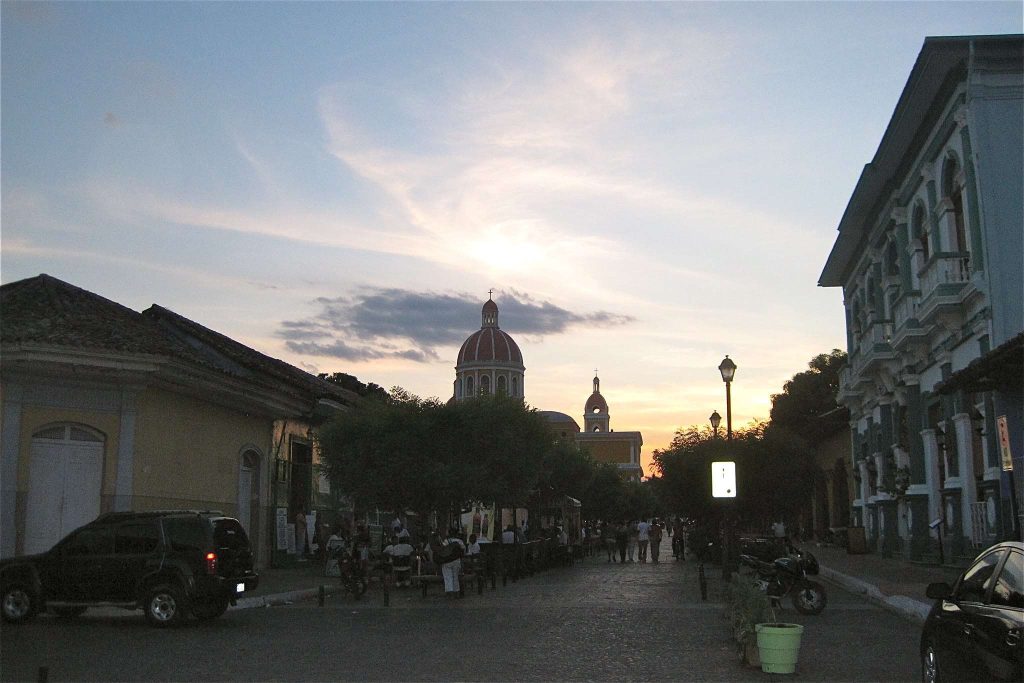
Is Nicaragua Safe?
The short answer is, yes, Nicaragua is safe to visit but the answer is not that simple. Like many other countries of the region, Nicaragua is not clear on challenges and issues like petty crimes.
So, the answer depends on many factors, like the location, timing, and how you behave.
This country is still a hidden gem, unspoiled by mass tourists. It boasts a diversified scenery with volcanoes, lakes, islands, beaches, rainforests, and more. You can do several outdoor activities like surfing, hiking, or scuba diving or simply rest in a hammock and enjoy the scenery.
Nicaragua has a diverse history and culture that encompasses indigenous, colonial, and revolutionary influences. You can explore the colonial cities of Granada and Leon, visit Managua’s museums and monuments, and learn about local traditions and crafts in rural areas.
Planning a Trip to Nicaragua?
Check Out These Helpful Services:
Find the best flight deals
This is the site I recommend, you can check all the different prices.
Best accommodation prices
I highly recommend this one, it’s the best option right now for Central America
The best way to get around is by car
Check out this site to rent a car and go at your own pace.
Safety Tips for Travelers
Choose Your Destinations Wisely
Certain cities are safer than others. Consider these options:
- Granada: A colonial gem with colorful streets, Granada offers a safe and charming experience.
- Leon: Known for its revolutionary history and vibrant arts scene, Leon is generally safe for tourists.
- San Juan del Sur: A beach town with a laid-back vibe, San Juan del Sur is a favorite among travelers.
Be Street Smart
- Avoid Demonstrations: Political protests can escalate quickly. Steer clear of demonstrations and large gatherings.
- Night Safety: Arrange for taxis through your hotel rather than walking alone at night.
Health and Infrastructure
- Healthcare: Nicaragua’s healthcare system is limited. Ensure you have travel insurance and access to medical facilities.
- Infrastructure: Some areas lack proper infrastructure. Be prepared for occasional challenges.
What are the main safety concerns for travelers?
Nicaragua is typically a safe place to visit, although it is not free of challenges. Some of the challenges you may experience include:
Crime
Nicaragua has a lower crime rate than other countries in the region, although petty theft, robbery, and fraud are nonetheless frequent, particularly in tourist regions and major cities.
You should always be cautious with your valuables, avoid walking alone at night, and choose reliable transportation and lodging options.
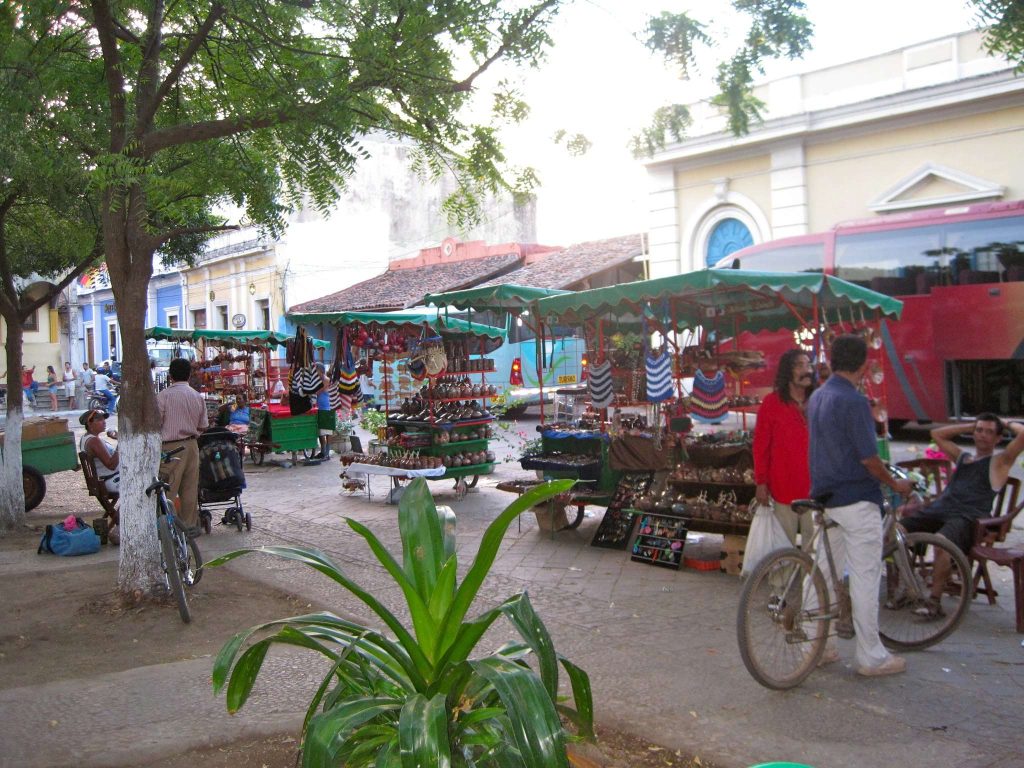
Political instability
Nicaragua has been experiencing a political crisis since 2018, when anti-government protests turned violent, resulting in hundreds of deaths and injuries.
The situation has stabilized since then, although there are still periodic conflicts and demonstrations that may disrupt your travel plans.
You should constantly verify the current situation before traveling, avoid any political meetings or demonstrations, and follow the advice of local authorities and your embassy.
Natural disasters
Nicaragua is prone to earthquakes, volcanic eruptions, storms, floods, and landslides, which can all cause damage and interruption to infrastructure and services.
You should always be prepared for emergencies, carry travel insurance that covers them, and follow the directions of local authorities and tour operators in the event of a crisis.
Health risks
Just like most of the neighboring countries, Nicaragua’s tropical climate can expose you to a variety of diseases and infections, including malaria, dengue, Zika, yellow fever, and others.
Before you leave, talk to your doctor about getting the proper vaccines and prescriptions and taking care to avoid mosquito bites and contaminated food and drink.
You should also be aware that Nicaragua’s healthcare system is substandard, and you may have trouble receiving medical treatments, particularly in isolated locations.
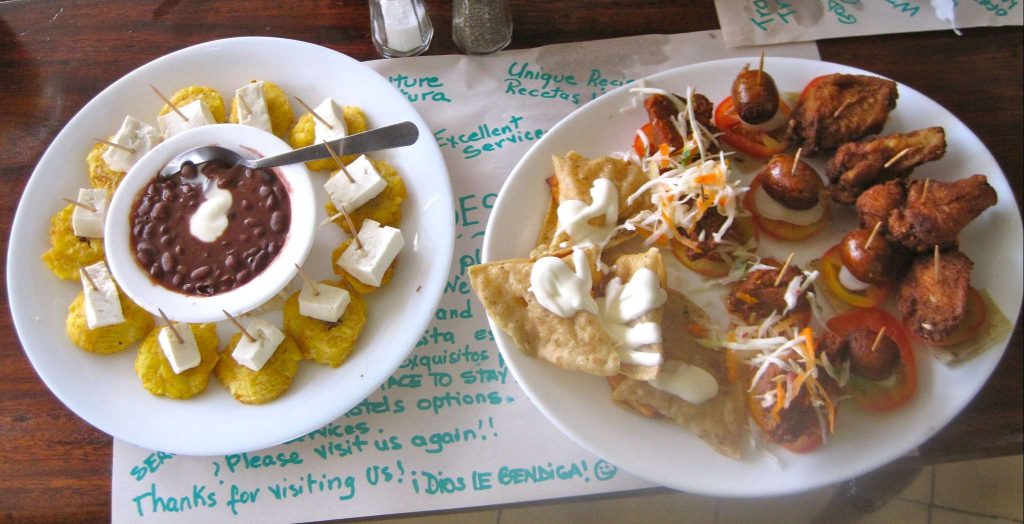
Safety Tips by Region
Nicaragua is organized into 15 departments, each with unique charms and challenges. Here are some safety precautions for some of the most popular destinations to visit:
Managua
Nicaragua’s capital and largest city, Managua, serves as the primary entry point for the majority of visitors. It boasts a modern and bustling atmosphere, with skyscrapers, stores, restaurants, pubs, and clubs.
It also boasts cultural and historical attractions, like the National Palace, the Old Cathedral, Revolution Square, and the Tiscapa Lagoon.
However, Managua is one of Nicaragua’s most dangerous and challenging cities, with high rates of crime, poverty, and pollution.
You should be very careful when visiting Managua, and follow these tips:
- Avoid the city center at night, as it is poorly lit and deserted, and attracts criminals and gangs.
- Avoid the neighborhoods of Acahualinca, Monseñor Lezcano, and Mercado Oriental, as they are known for being violent and unsafe.
Granada
Granada is one of Nicaragua’s oldest and most attractive cities, and it’s a favorite destination for tourists looking to experience the country’s colonial beauty and culture.
It boasts colorful and magnificent buildings, including churches, museums, markets, and plazas. It also offers a busy and energetic atmosphere that includes cafes, restaurants, bars, and festivals.
Granada is also an excellent location for visiting local sights such as the Masaya Volcano, the Mombacho Volcano, the Apoyo Lagoon, and the Granada Islands.
Granada is generally a safe and friendly city, but you should still take some precautions, such as:
- Avoid walking alone at night, especially on the outskirts of the city, where there are fewer people and lights.
- You should also avoid the areas near the lake, the Cementerio Municipal, and the bus station, as they are known for being unsafe and frequented by criminals.
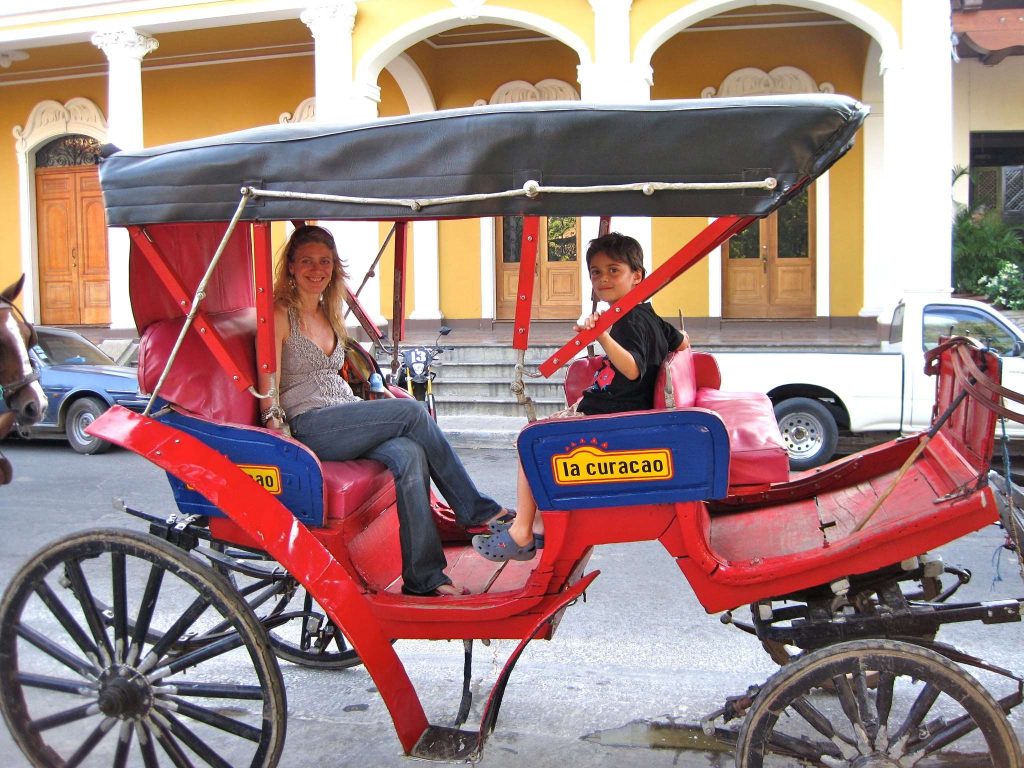
Leon
Leon is another colonial city in Nicaragua, having served as the country’s former capital. It has a rich and stormy history, having served as the epicenter of the Sandinista movement and resistance to Somoza’s government.
It has several cultural and historical attractions you can visit, including the Cathedral of Leon, Central America’s largest, the Museum of the Revolution, the Museum of Art, and the birthplace of Ruben Dario, a notable poet.
It is also a popular destination for adventurers, as it is adjacent to the Cerro Negro Volcano, where you can attempt volcano boarding, a unique and adventurous activity.
Leon is a relatively safe and welcoming city, but you should still be careful, and follow these tips:
- It’s best to avoid walking alone at night, particularly on the outskirts of the city where there are fewer people and lights.
- Avoid the areas near the market, the bus station, and the cemetery since they are considered unsafe and attract criminals.
- Avoid the Barrio Subtiava, a poor and marginalized neighborhood that is known for its high crime rate and social problems
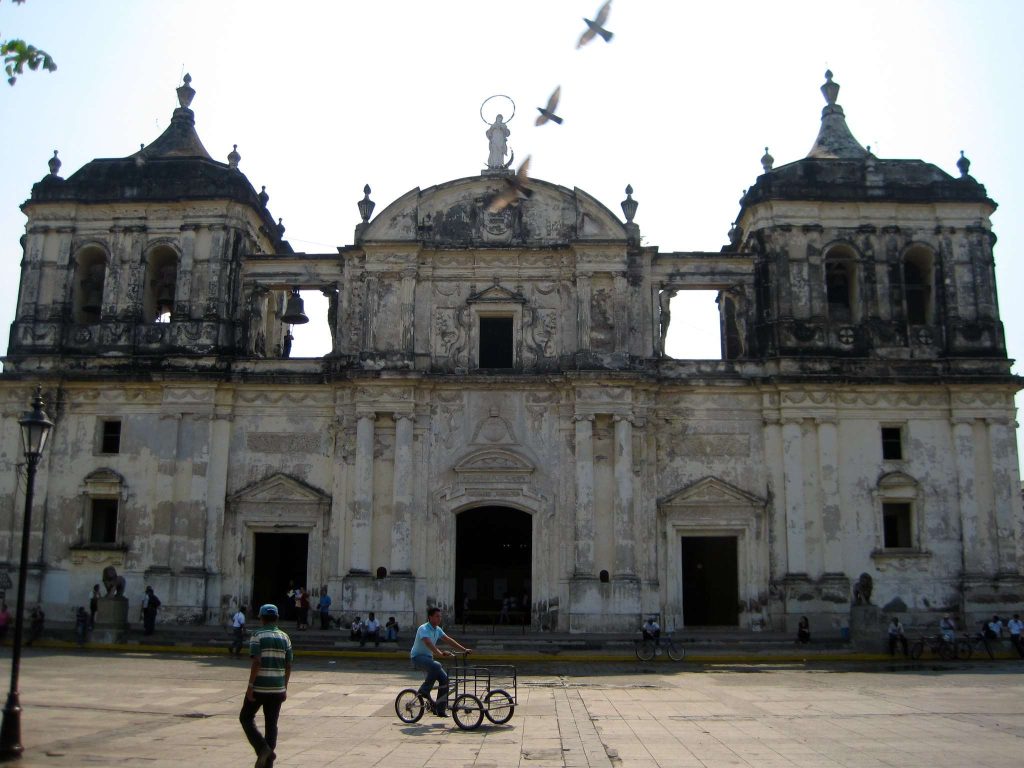
Ometepe Island
Ometepe Island is a natural wonder in Nicaragua, constructed by two volcanoes that rise from Lake Nicaragua. It is a UNESCO Biosphere Reserve and a haven for nature enthusiasts and eco-tourists.
It offers numerous attractions, including the Concepcion and Maderas volcanoes, the Ojo de Agua natural spring, the Charco Verde lagoon, the San Ramon waterfall, and pre-Columbian petroglyphs.
It also features a tranquil and rural ambiance, with farms, villages, and nice residents.
Ometepe Island is a safe and relaxing place to visit, but you should still be aware of some potential risks, such as:
Volcanic activity: The Concepcion volcano is active, and may erupt at any time, causing ash, smoke, and lava flows. You should always check the volcanic alert level before you go, and follow the instructions of the local authorities and your tour guide in case of an eruption.
Transportation: Getting to Ometepe Island can be a bit challenging as the only transportation options available are ferries or boats, which can get quite crowded, uncomfortable, and unreliable at times.
It’s a good idea to book your tickets ahead of time and make sure to check the weather and schedule before heading out. Also, anticipate delays or cancellations and have a backup plan ready.
Animals and insects: Ometepe Island boasts a wide variety of wildlife, but some animals and insects can be dangerous or bothersome. Avoid contact with snakes, spiders, scorpions, bats, monkeys, and dogs to prevent bites, scratches, and potential transmission of diseases or infections.
It’s important to shield yourself from mosquitoes, flies, and sandflies since they can transmit diseases like malaria, dengue, Zika, and others.
Consider using insect repellent, covering up with long sleeves and pants, and sleeping under a mosquito net.
Water and food: Ometepe Island’s water supply is limited and of poor quality. It’s advisable not to consume or use tap water for brushing teeth, as it could lead to health issues like diarrhea and vomiting.
It’s best to stick to bottled or purified water and steer clear of ice cubes, juices, or salads. It’s important to watch what you eat and stick to clean and trustworthy establishments.
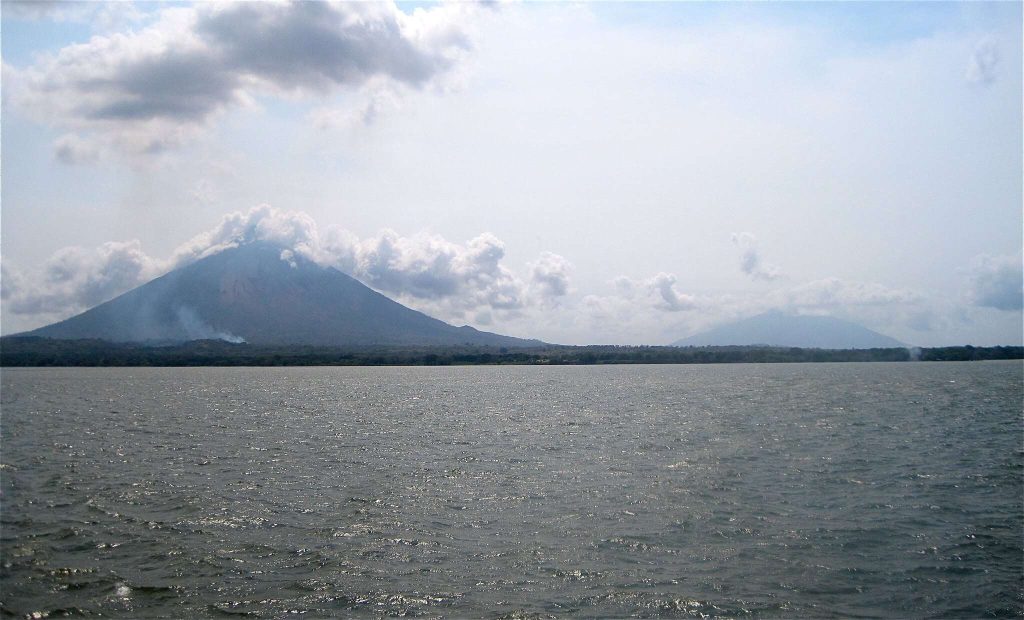
Essential Travel Resources
❗Don’t forget travel insurance
This company is the one I trust, it’s one of the most essential things for any trip. It has your back in case you get sick abroad, or have an accident.
🎒Pack smarter, not bulky
Check out this vacation packing list, including all the essentials you need to pack when traveling, from travel clothing to backpacks and more.
🏡Where to Stay – Here are Suggestions
This is my favorite place to look for accommodations, it offers different types, a ton of locations, and good price options.
🗺️Get Around Hassle-Free
This one is the perfect option to look for different transportation options between cities, from flights, buses, and taxis to minivans and more.
🛫Find Cheap Flights
Whenever I need to fly, I head to this website for low-cost flights.
San Juan del Sur
San Juan del Sur is a beach hamlet in southern Nicaragua that attracts surfers, travelers, and partygoers. It boasts a relaxed and enjoyable atmosphere, with a large and sandy beach, a vibrant and colorful town center, and various bars, restaurants, and clubs.
It also contains several natural and cultural attractions, including the Christ of Mercy statue, the La Flor Wildlife Refuge, and the surrounding beaches of Maderas, Marsella, and Hermosa.
San Juan del Sur is a safe and enjoyable place to visit, but you should still be mindful of some possible issues, such as:
Crime: San Juan del Sur can be quite busy with tourists, which unfortunately may also draw in some individuals looking to take advantage of travelers.
Drugs and alcohol: San Juan del Sur is famous for its vibrant nightlife and party atmosphere, where you might come across individuals engaging in drug and alcohol use.
Make sure to be responsible and mindful of your consumption, and steer clear of illegal or unfamiliar substances that could be harmful or addictive.
It’s important to know the local laws and penalties related to drugs and alcohol to steer clear of any issues with law enforcement or the community.
Sun and heat: San Juan del Sur typically experiences hot and sunny weather, so it’s important to be mindful of high temperatures and UV rays to avoid sunburn, dehydration, or heatstroke.
It’s a good idea to wear a hat, sunglasses, sunscreen, and light and breathable clothes, and stay hydrated.
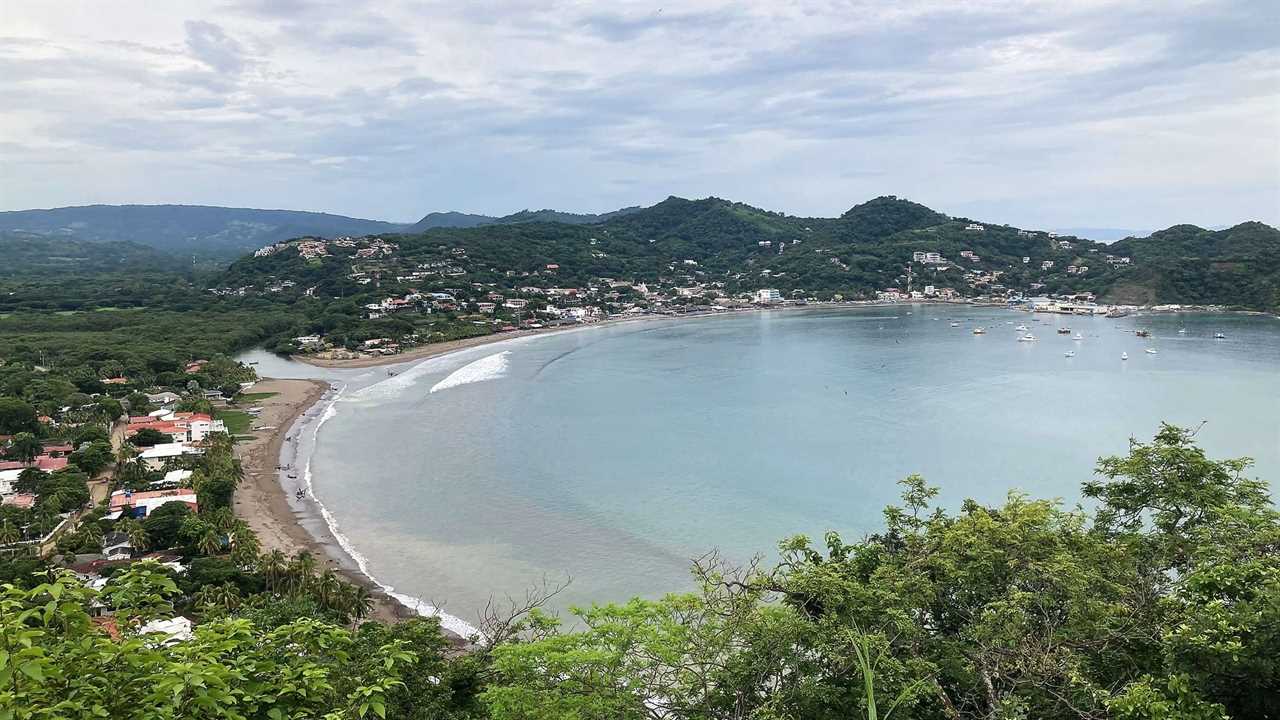
Corn Islands
The Corn Islands are two small islands in the Caribbean Sea, located off the coast of Nicaragua. They are a tropical paradise, complete with white sand beaches, turquoise waters, coral reefs, and palm palms.
They are ideal for relaxing, swimming, snorkeling, diving, fishing, and kayaking.
The islands also have a distinct and diversified culture, shaped by indigenous, African, and British settlers.
The Corn Islands are a safe and tranquil place to visit, but you should still pay attention to some possible challenges, such as:
Accommodation: The Corn Islands offer a variety of places to stay, including upscale resorts and affordable hostels.
Availability might be limited, especially during peak seasons or holidays, so, it’s a good idea to book your accommodation ahead of time and be sure to review the ratings and feedback of the places you plan to stay at.
Language and culture: The Corn Islands have a unique language and culture compared to the rest of Nicaragua, while English is the main language, many residents speak English Creole, which is a blend of English, Spanish, and African languages.
It’s important to show respect for the local culture and customs by avoiding offensive or insensitive comments or gestures. Dress modestly and appropriately, especially when visiting churches or other sacred places.
It’s best to steer clear of snapping pictures of individuals without their consent, particularly children, as it could come off as impolite or questionable.
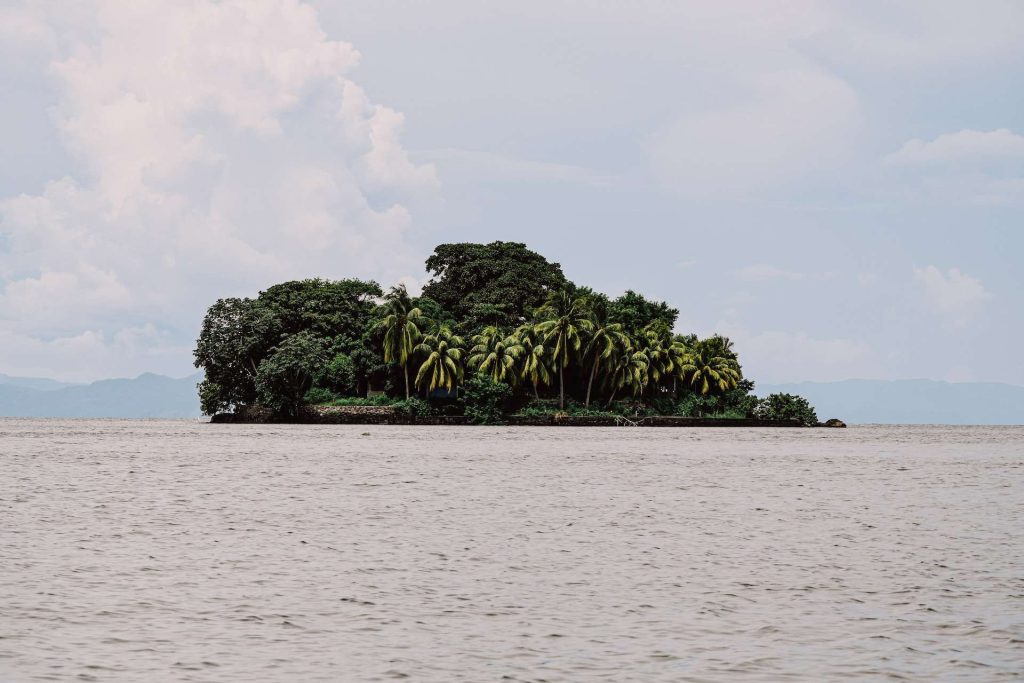
Safety Tips by Activity
Nicaragua is an excellent choice for those who love adventure, while there’s a wide range of thrilling activities to experience, the most popular are those and you’ll probably be doing one, if not all, of these.
Keep in mind that some of these activities can come with risks and challenges, so it’s good to be ready for them.
Check out these safety tips for popular activities in Nicaragua:
Volcano Hiking
Nicaragua boasts over 20 volcanoes, with some being active, providing breathtaking views and experiences. You have the option to hike to the crater, or the summit of various volcanoes like Masaya, Mombacho, Concepcion, Telica, or Cerro Negro.
Volcano hiking can be challenging, so it’s important to keep these tips in mind:
- Opt for a reliable and seasoned tour operator or guide familiar with the route, conditions, and safety precautions.
- Make sure to check the weather and volcanic alert level before heading out, and it’s best to avoid hiking in case of rain, fog, wind, or an eruption.
- Make sure to wear suitable and comfy attire, like hiking boots, long pants, a jacket, a hat, and gloves. Don’t forget to pack a backpack with water, snacks, sunscreen, insect repellent, a flashlight, and a first aid kit.
- Get ready for the high altitude, hot weather, smoky conditions, and ash. Make sure to stay hydrated, take regular breaks, and steer clear of touching or breathing in the volcanic materials.
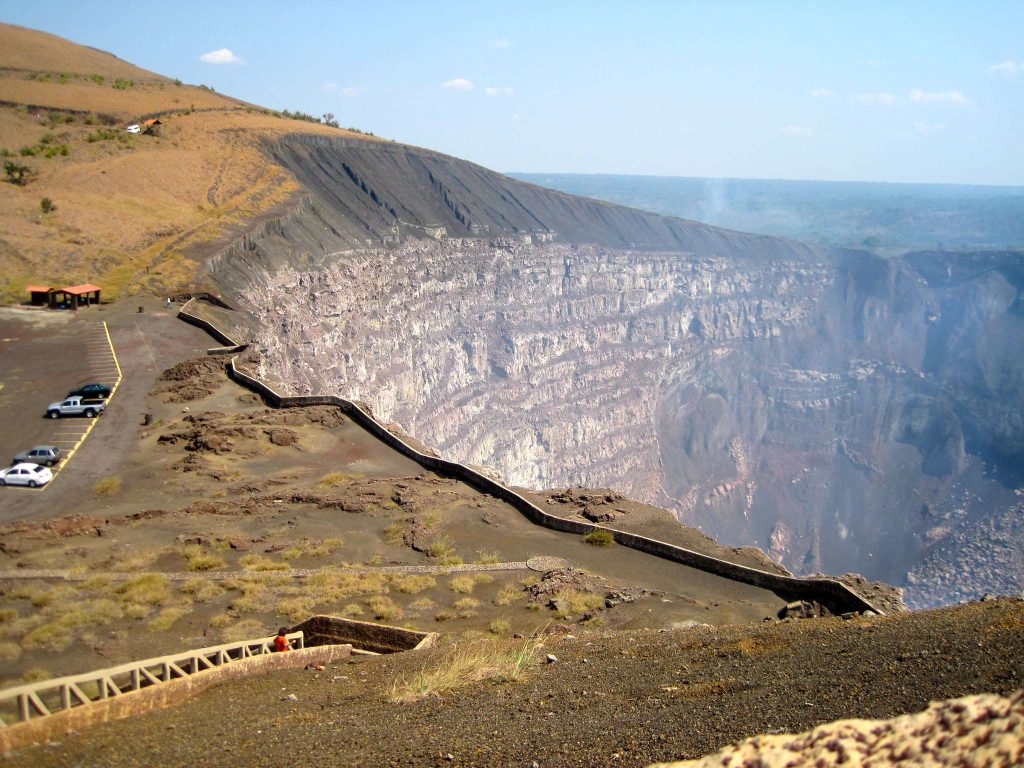
Surfing
Nicaragua is a fantastic destination for surfers with its reliable waves, balmy water, and peaceful beaches. There are plenty of spots along the Pacific coast where you can catch some waves, like San Juan del Sur, Popoyo, Maderas, or Las Peñitas.
You can also try surf schools, camps, and rentals to help you learn or improve your skills.
Surfing comes with its risks, so it’s important to keep these tips in mind:
- Find a spot that matches your skill level and is safe, steering clear of areas that are too shallow, rocky, or crowded.
- Make sure to also keep an eye on the tide, swell, wind, and current before heading out, and steer clear of surfing in unfavorable conditions or after dark.
- Make sure to choose a surf instructor or guide who is reputable experienced, and familiar with the area, conditions, and safety rules.
- Make sure to wear the right clothes and gear for your activity, like a wetsuit, and rash guard.
- Make sure to choose a surfboard that suits your size and preferences, and inspect it for any signs of damage or flaws.
- Respect the local surf culture and etiquette by avoiding dropping in, snaking, or paddling in front of other surfers.
- Avoid surfing in areas designated for locals, fishermen, or swimmers.
Scuba Diving
Nicaragua offers some of the best scuba diving locations in Central America, particularly along the Caribbean coast and the Corn Islands.
Feel free to check out the coral reefs, shipwrecks, caves, and amazing marine life, and try the scuba diving schools, centers, and tours.
Scuba diving can be a challenging and risky activity, so it’s important to keep these tips in mind:
- Choose a reputable and experienced scuba diving operator or instructor, who knows the area, the conditions, and the safety procedures.
- Check the weather and the water conditions before you go, and avoid diving if there is rain, storm, wind, or strong current.
- Make sure to wear the right clothes and gear for your dive, including a wetsuit, mask, snorkel, regulator, buoyancy control device, and dive computer.
- Make sure to choose a scuba tank that matches your size and capacity, and inspect it for any signs of damage or leaks.
- Get ready for the pressure, depth, and decompression, which could lead to issues like ear pain.
- Make sure to stick to the dive plan, depth limit, and no-decompression limit, and ascend gradually and securely.
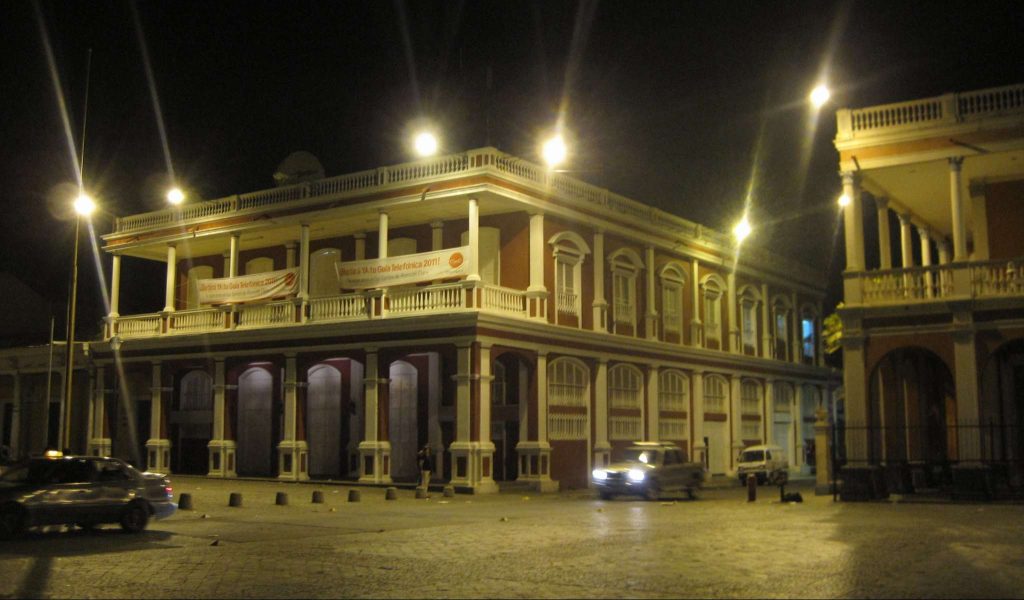
FAQ
Is Nicaragua safe for solo female travelers?
Yes, Nicaragua is moderately safe for solo female travelers if you are informed, prepared, and cautious.
Visiting Nicaragua requires some planning and preparation. Make sure to complete your homework, organize your schedule, and remember to prioritize safety.
Nicaragua is a beautiful and diverse country that has a lot to offer to solo female travelers. Just remember to be smart, alert, and respectful, and you’ll be fine.
Is Nicaragua safe for American tourists?
Yes, most American tourists feel safe in Nicaragua but the answer is not that simple, since there are some risks and challenges that you should be aware of before you plan your trip. Also, you need to use your common sense and avoid any issues.
The U.S. Department of State suggests that American citizens should think twice about traveling to Nicaragua because of civil unrest, crime, limited healthcare availability, and arbitrary enforcement of laws.
But that doesn’t mean you can’t still have a good time in Nicaragua. Several travelers have shared positive feedback about their stay, mentioning no significant problems.
Just remember, being well-informed, prepared, and cautious is crucial.
Which places should I avoid while visiting Nicaragua?
The places you should avoid are those that are crowded or well-known for a high-rate of crimes. Here are some of the most dangerous cities and areas in Nicaragua that you should steer clear of.
Tipitapa: This city located on the eastern coast of Lake Xolotlan has a reputation for its high crime rate and frequent gang violence.
This place is not very welcoming to tourists, and there have been incidents of robberies, assaults, and kidnappings. When visiting Tipitapa, make sure to be cautious and avoid walking alone at night or in unfamiliar places.
Zona Rosa: This area in Managua, the capital of Nicaragua, is well-known for its high levels of poverty and drug-related activities.
This location attracts criminals who target both tourists and locals. If someone offers you drugs, prostitutes, or other illegal services, just ignore them. You might find yourself in a risky situation or even worse.
Peñas Blancas: This town on the border with Costa Rica is a significant hub for illegal immigrants, smugglers, and human traffickers.
It’s a common target for armed groups and paramilitary forces that frequently engage in conflicts with the authorities.
There is a risk of encountering harassment, extortion, or violence if attempting to cross the border in this area. Consider using an alternative entry point or steering clear of the border entirely.
Disclosure: This blog post may contain affiliate links, which means that I may receive a commission for any purchases made through the links. Your trust is important to us, and we ensure that all products or services we recommend meet or exceed our editorial standards.
Last Updated on February 28, 2024
The post Is Nicaragua Safe to Visit? Ultimate Safety Guide appeared first on Travel Experta - Travel, Lifestyle, Freedom.
------------------------------------------
By: Angel
Title: Is Nicaragua Safe to Visit? Ultimate Safety Guide
Sourced From: travelexperta.com/is-nicaragua-safe/
Published Date: Wed, 28 Feb 2024 16:36:48 +0000






